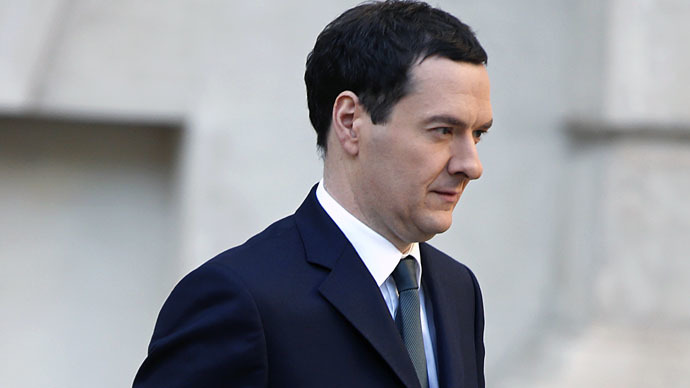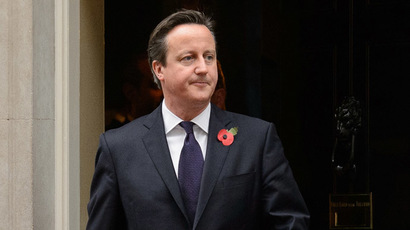Osborne announces 25% ‘Google tax’ on global tech firms

Multinational tech companies will be subjected to a new 25 percent levy in order to curb tax avoidance and the siphoning of revenues into secretive havens, said Chancellor George Osborne in Wednesday’s Autumn Statement.
Dubbed the ‘Google Tax’, the chancellor plans to tax tech giants at a rate 5 percent higher than the standard level of corporate tax, with the aim to stop companies diverting their profits to untraceable havens such as Ireland and Luxemburg.
American tech giants including Amazon and Facebook are also expected to be hit by the new tax measures, following reports that the latter paid zero corporation tax in the UK last year.
Osborne said the tax would likely be introduced in April, raising around £1.3 billion over the next five years. He also said the government was currently losing more than £1 billion each year due to tax avoidance schemes.
“Today I am introducing a 25 percent tax on profits generated by multinationals from economic activity here in the UK which they then artificially shift out of the country,” Osborne told MPs on Wednesday.
“That's not fair to other British firms. It's not fair to the British people either. My message is consistent and clear. Low taxes; but taxes that will be paid.”
There are currently few details on how the tax will work, or how it will stop companies from diverting their profits into shell companies or into accounts outside of the UK’s jurisdiction.
However, the management consultant firm Deloitte tweeted there would be no details on how the tax would work until December 10.

While the proposal has been lauded by some as proof that Osborne is tackling the tax avoidance of multinationals, others have criticized the measure as punitive and possibly self-defeating.
Following the announcement, the UK’s Confederation of British Industry (CBI) warned the chancellor his proposals would “be a concern for global businesses.”
“International tax rules are in urgent need of updating, but the decision for the UK to go it alone, outside the OECD process, will be a concern for global businesses, and moving the goalposts on offsetting losses risks creating a worrying precedent,” said CBI Director General John Cridland.
Others have warned Osborne’s measures could clash with existing rules in the European Union’s single market, and could be deemed as illegal by Brussels.
Writing in Forbes magazine, author and economics blogger Tim Worstall said the proposals would be ineffective unless the companies were registered or based in the UK.
“Sales into the UK are not made by a UK-based, -resident or -domiciled company,” he wrote.
“As such the corporation tax due on the profits from such sales is due in Luxembourg or Ireland. The Double Irish and that Dutch comestible are ways to reduce the Irish tax payable on those profits but they’re nothing at all to do with the UK tax system.”
Last year, British Prime Minister David Cameron urged for global action against “aggressive tax avoidance” at the G8 conference.














